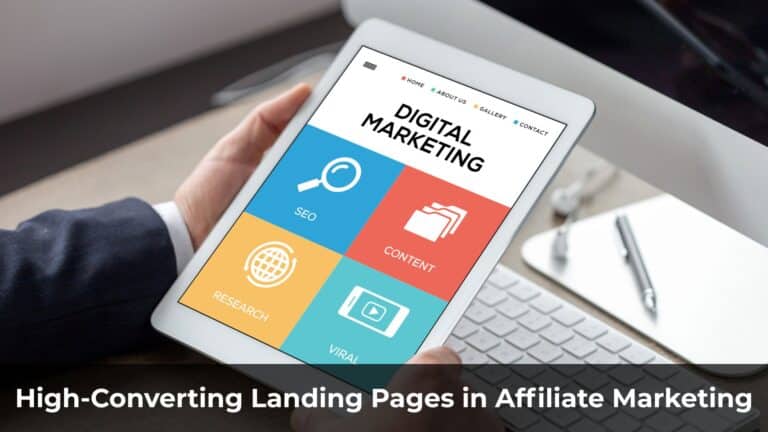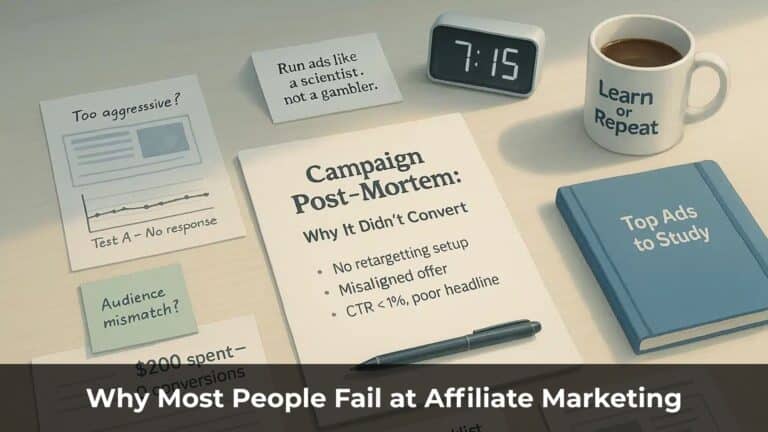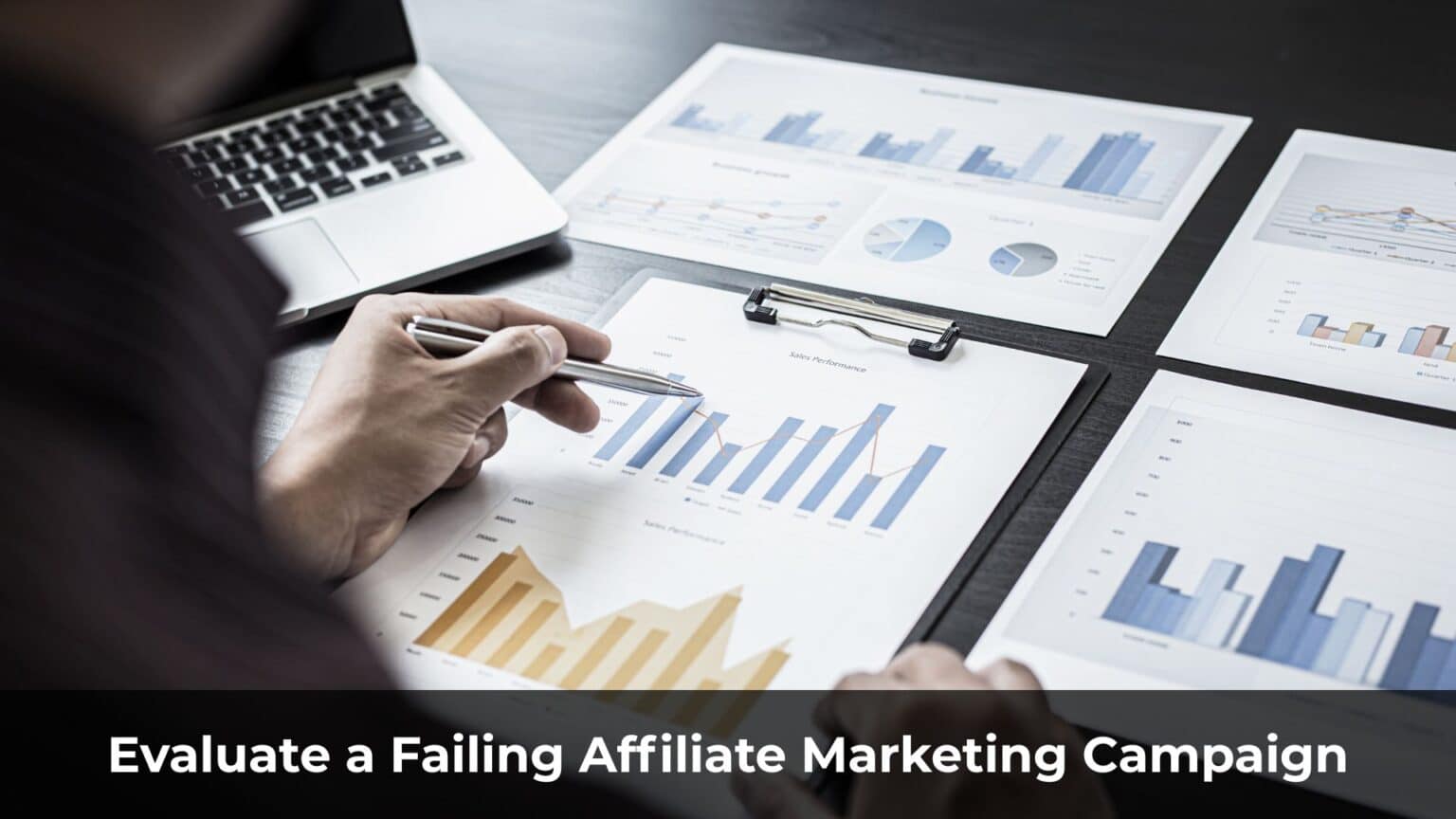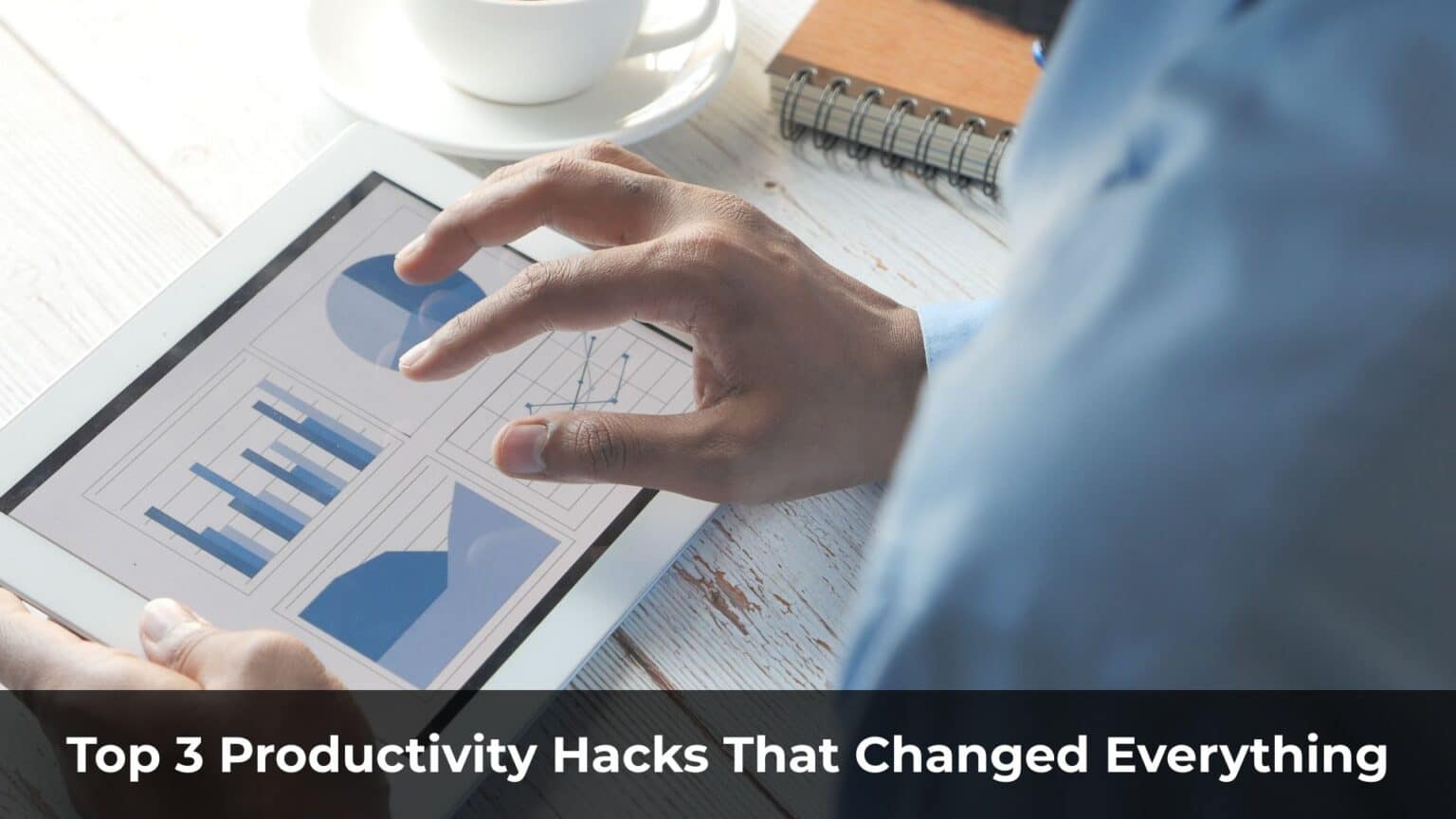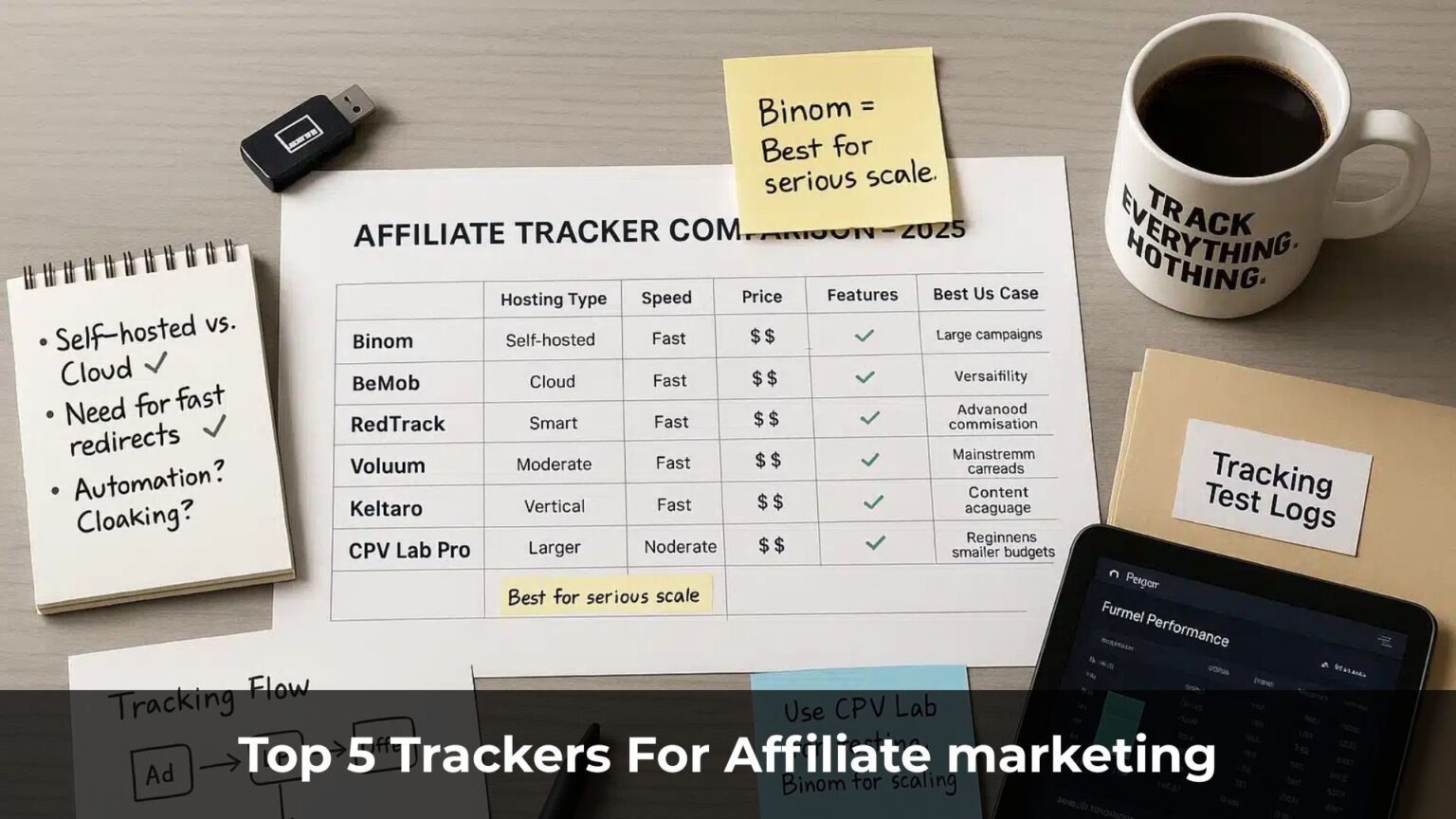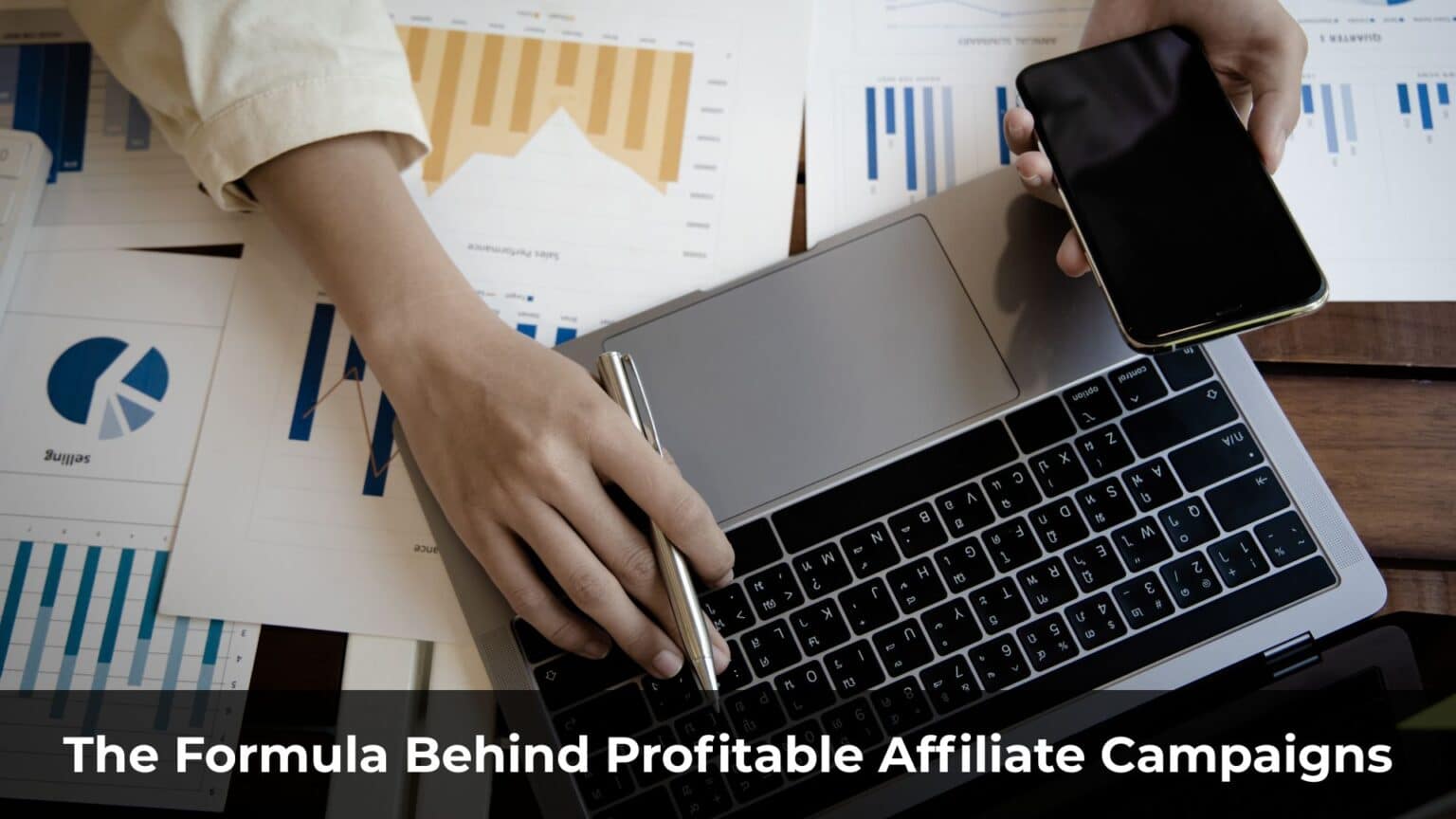Let’s say you’re starting your affiliate marketing journey with this setup:
- Monthly budget: $500
- Affiliate tools & software: $450
- Leftover for traffic: $50
If this sounds like you, you’re going down the wrong path.
I get it — you want to succeed, and you want every possible advantage. But spending most of your budget on tools leaves you with almost nothing to grow your campaign.
The truth is, you don’t need expensive tools to get started. What you need is the right tools — the ones that help you save both time and money, so you can invest more into actual traffic and testing.
Table of Contents
TogglePick the Right Tools — But Don’t Overspend
It’s important to choose tools that save you time and money.
But here’s the catch: if you spend too much upfront, you’ll be left with nothing to spend on traffic.
And without traffic, your campaign isn’t going anywhere.
Traffic is the fuel. No traffic means no data.
And without data, you can’t optimize, you can’t split test — and you definitely can’t build a profitable campaign.
I know many beginners are working with tight budgets.
Some of you are watching every single dollar.
I get it. I’ve been there — and I’ve made it through.
So the real question is:
What tools do you actually need?
What are the must-haves to launch your first campaign the right way?
When should you invest in things like spy tools, affiliate events, or premium services?
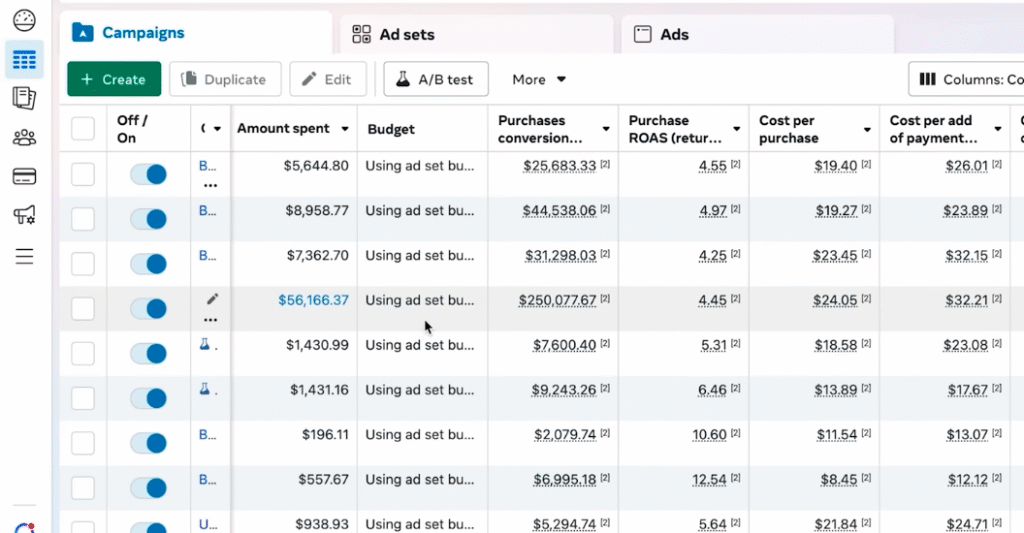
Buying Traffic — The Core of Every Affiliate Campaign
At the end of the day, affiliate marketing comes down to just two things:
Traffic and an offer.
That’s really all you need to get started.
Your job is to buy traffic from a platform — whether it’s Facebook, a DSP, or a native ad network — and send that traffic to your offer page.
It sounds simple, because it is.
But here’s the part most beginners overlook:
You need money to buy traffic.
There’s no fixed price. There’s no minimum or maximum.
But the more budget you have, the more variables you can test — which means faster data, better insights, and higher chances of success.
As a general rule, I recommend setting aside at least $250 just for traffic when launching a campaign.
This gives you enough room to test angles, creatives, and placements without burning out too early.
Remember: traffic is not an afterthought.
It’s the engine that drives your entire campaign. Don’t leave it underfunded.
Tracking Tools — The Only Way to Measure Your Campaign
Price: Voluum starts at $99/month. Other tools may cost less, but tracking isn’t something you want to cheap out on.
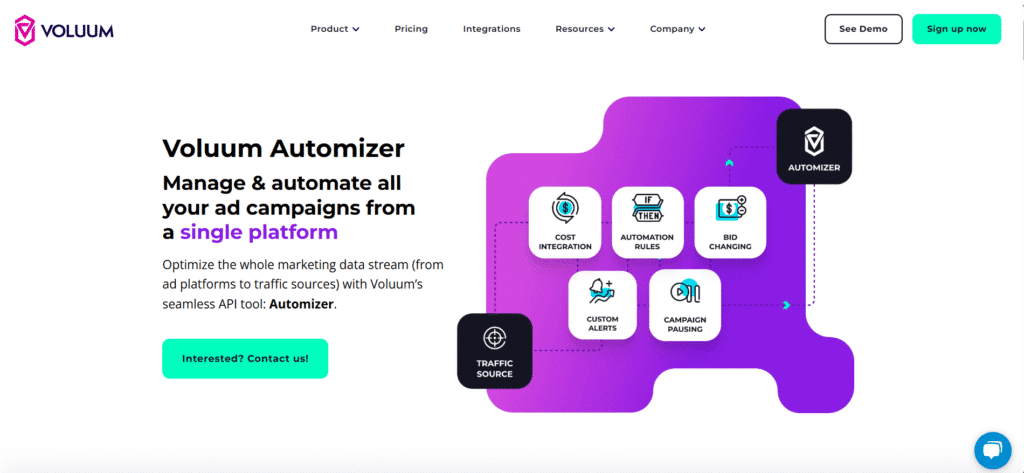
Here’s the problem:
If you buy traffic and send it directly to an offer without tracking, you’ll have no idea which segments of traffic are profitable.
In affiliate marketing, that’s the kiss of death.
You need to know exactly who’s converting — and then double down on that segment.
Let’s say Android users are generating profit, but iOS traffic is losing money.
If you know that, you can cut iOS from your campaign and scale up the Android traffic.
The only way to make those decisions is by using a proper tracking platform.
With a good tracker, you’ll see detailed stats like carrier, IP address, city, operating system, and browser.
You’ll know exactly where your conversions are coming from — down to the smallest detail.
Now, I’ve seen people try to use free tools like Google Analytics for affiliate campaigns. And it always ends the same way: frustration and failure.
Using Google Analytics for paid affiliate campaigns is like trying to build a house out of sand.
If you want to do this seriously, use a real tracker.
I personally recommend Voluum, Binom, or RedTrack.
There are others out there — but these are the ones I’ve used and trusted.
If you run paid traffic without a tracker, you’re not testing. You’re just wasting money.
VPS Hosting — A Critical Piece You Shouldn’t Overlook
Price: A reliable VPS will cost you around $60/month.
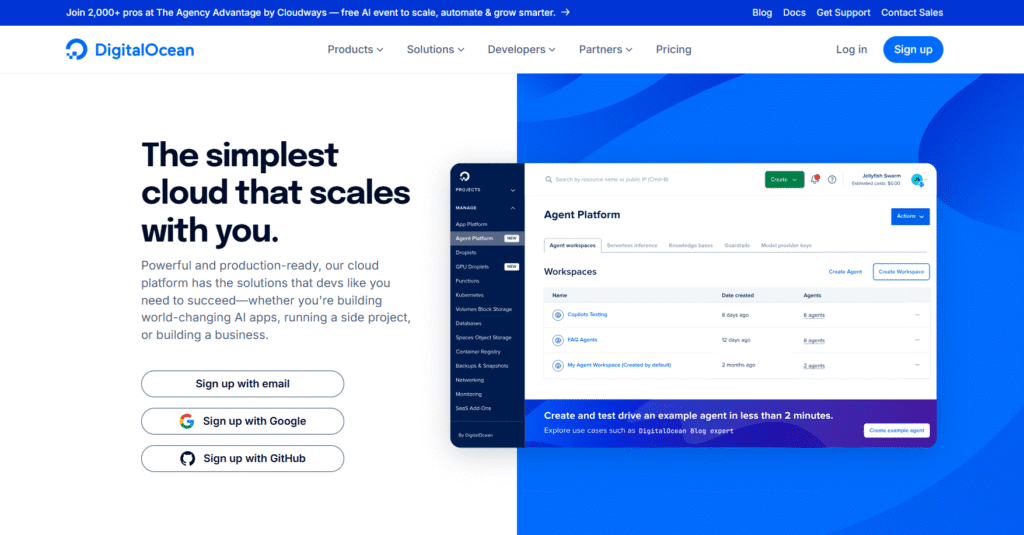
So far, you’ve set your budget, picked a tracking tool — now it’s time to talk about hosting.
If your tracker is cloud-based (like Voluum or RedTrack), you’re already covered there.
But you still need a VPS to host your landing pages, images, scripts, and any assets related to your campaign.
In 95% of my campaigns, I use a landing page.
Which means: hosting matters — a lot.
Now here’s a question I hear all the time:
“Can I just use a shared hosting plan? It’s only $2.50 a month.”
Short answer? No.
Shared hosting is a terrible idea for affiliate marketing.
Why? Because affiliate campaigns deal with massive amounts of traffic.
Once you’re up and running, it’s not uncommon to send thousands of visitors per hour to a page.
Shared hosting simply can’t handle that. It’s designed for small blogs or low-traffic websites — a few hundred visits per day at most.
Let me give you an example:
- Affiliate A runs a landing page that loads in 0.2 seconds with 99.99% uptime.
- Affiliate B uses the exact same landing page — but it takes 2 seconds to load and has 98% uptime.
Now imagine 50% of visitors bounce before the page even loads for Affiliate B. That’s 50% of potential profit, gone.
Why Shared Hosting Will Hurt Your Affiliate Campaign
In affiliate marketing, page speed and uptime aren’t nice-to-haves — they’re critical.
VPS hosting outperforms shared hosting in every way.
It can handle high traffic loads without crashing, and it keeps your landing pages fast and responsive.
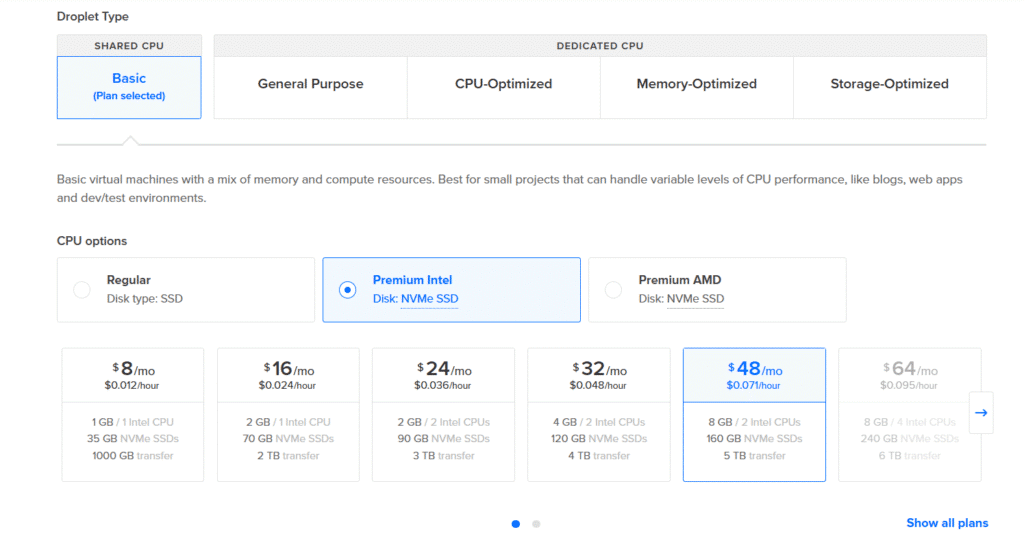
When I first started, I made the mistake of using shared hosting — and I paid the price.
Heavy traffic crashed the server, and my landing pages were down for hours.
It cost me hundreds of dollars in lost ad spend.
And once your campaigns are profitable, consider upgrading to a dedicated server and use a CDN (like Amazon CloudFront or Rackspace) to serve your images and scripts even faster.
Next, let’s look at a few optional tools you may want to consider later on.
Paid Forums for Serious Affiliate Marketers
If you’re ready to level up in affiliate marketing, it might be time to invest in premium communities — and one of the best out there is the Affiliate World Forum.
Price: $99/month
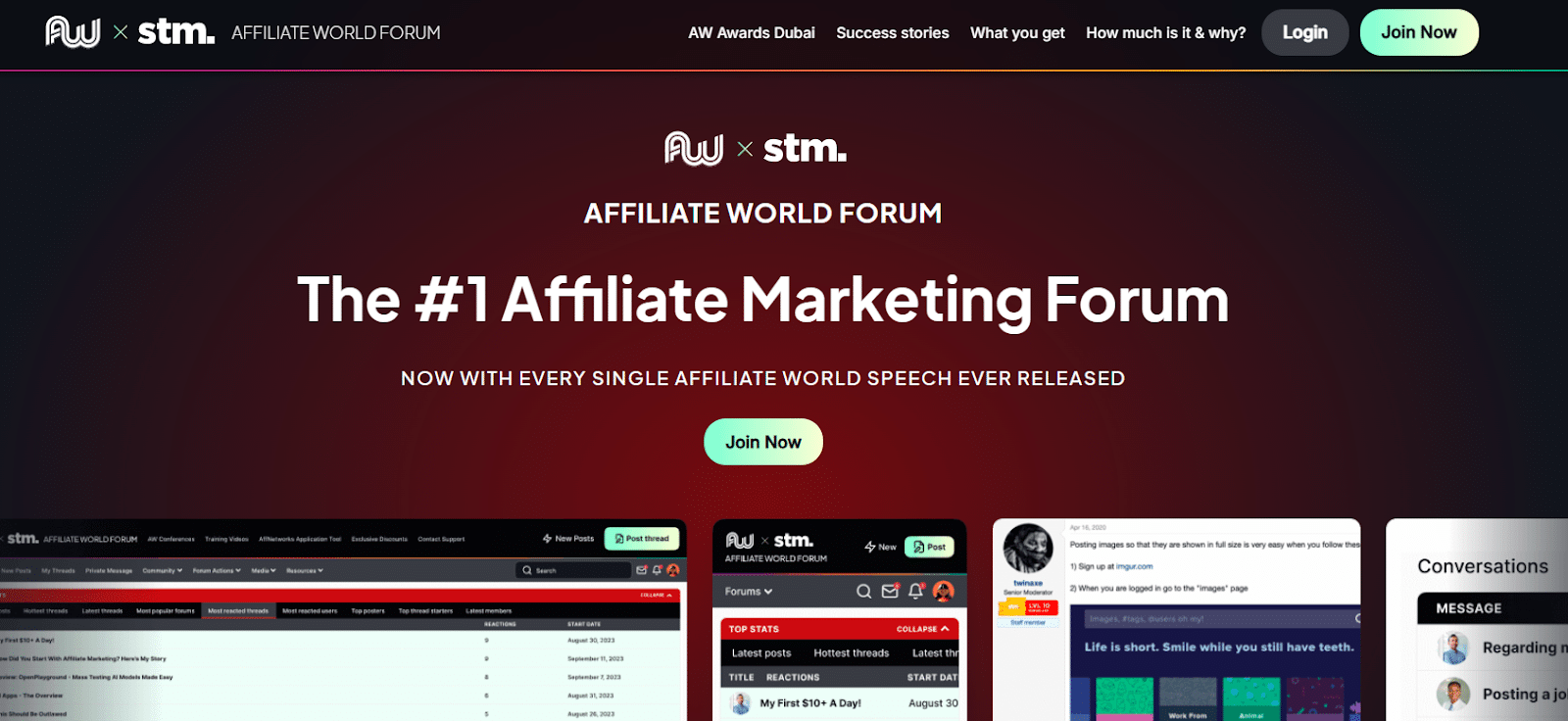
Here’s the hard truth:
No one shares the real money-making strategies for free.
If you see public tips and tactics online, they’re usually outdated — or the person sharing them has already moved on from that method.
Even this blog (yes, including what you’re reading now) focuses on solid foundational knowledge — but not the step-by-step systems I personally use to optimize campaigns.
The real secrets — the ones that make serious money — are behind a paywall.
And one of the smartest moves you can make is to join a forum full of skilled, like-minded marketers.
But choose wisely.
If you spend time on places like Warrior Forum, you’ll likely get overwhelmed by bad advice from beginners who don’t know what they’re doing.
There are several good paid forums, but the one I recommend is Affiliate World Forum. It’s one of the most respected and well-moderated communities in the industry.
One of the best features?
The “follow along” threads — where members document their campaigns in real time.
As a beginner, reading those is gold.
Even better: if you create your own follow-along, you’ll get feedback and support from experienced affiliates, moderators, and even admins.
In short, I believe this forum is worth every dollar.
You can read blogs and watch tutorials to get started, sure —
But if you want to go pro, a serious forum will teach you what free content never will.
And no, I don’t recommend free forums.
Not because there’s no good advice — but because 99% of the posts are noise, hype, or low-quality pitches.
And it’s nearly impossible to tell who’s legit and who just wants to sell you something.
Another Great Option: affLIFT
If you’re looking for a more beginner-friendly forum that still offers solid value, I highly recommend affLIFT.
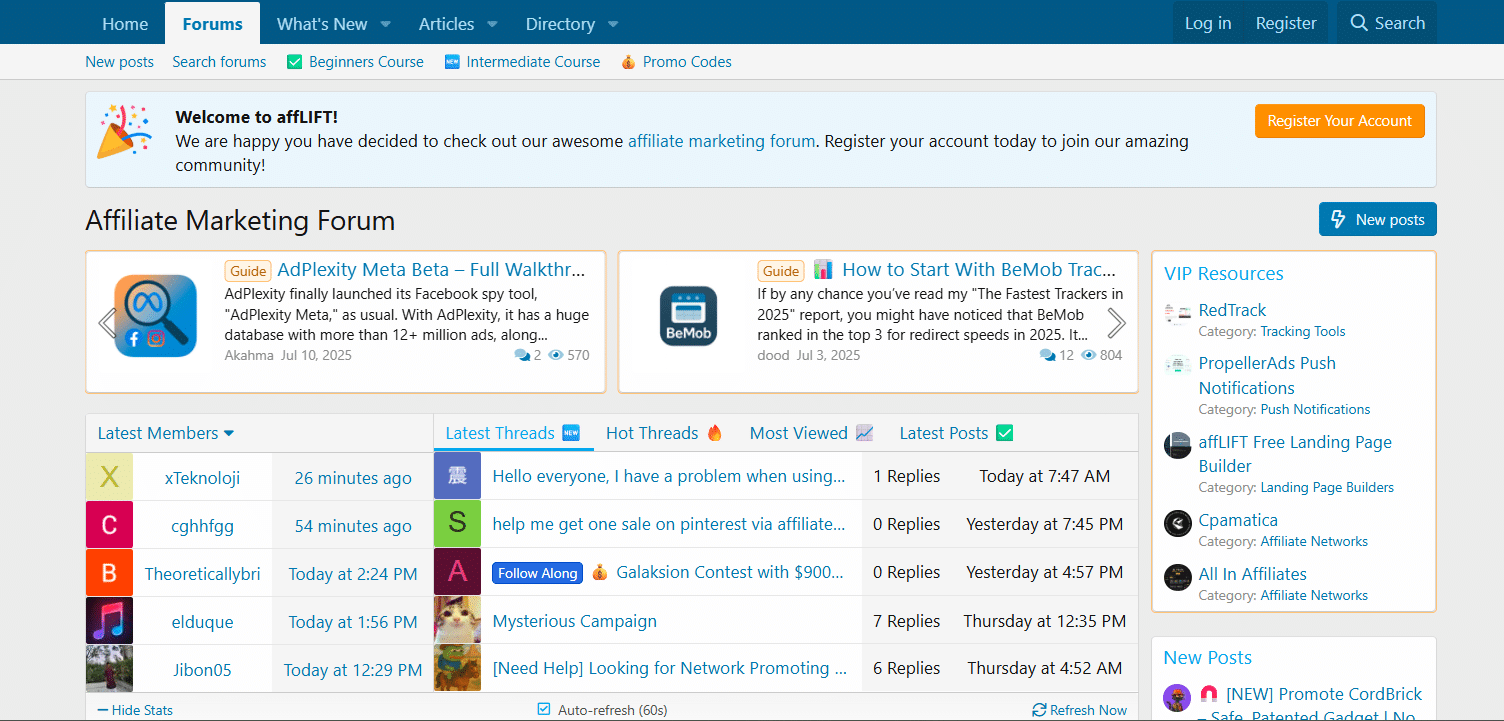
It’s run by a real affiliate (Luke Kling), and the community is incredibly helpful — especially if you’re just getting started with paid traffic or CPA marketing.
The membership is much more affordable than most premium forums, but you still get access to high-quality follow-along threads, guides, case studies, and direct answers from experienced affiliates.
I’ve seen many beginners launch their first profitable campaigns thanks to affLIFT.
It’s not as advanced or exclusive as some high-ticket communities — but that’s exactly what makes it accessible and supportive for newer marketers.
If you’re on a tighter budget and want a solid place to learn, test ideas, and get real feedback, affLIFT is a great place to start.
A Word of Caution About Forums
There’s one problem I’ve seen with forums — even the good ones:
They can trick you into thinking you’re working when you’re really just browsing.
Scrolling through threads might feel productive.
But real progress only happens when you take action — when you actually launch campaigns, test offers, and analyze data.
So here’s my advice:
Use forums only when you have a specific question or when you’re actively engaging in your own follow-along thread and getting feedback.
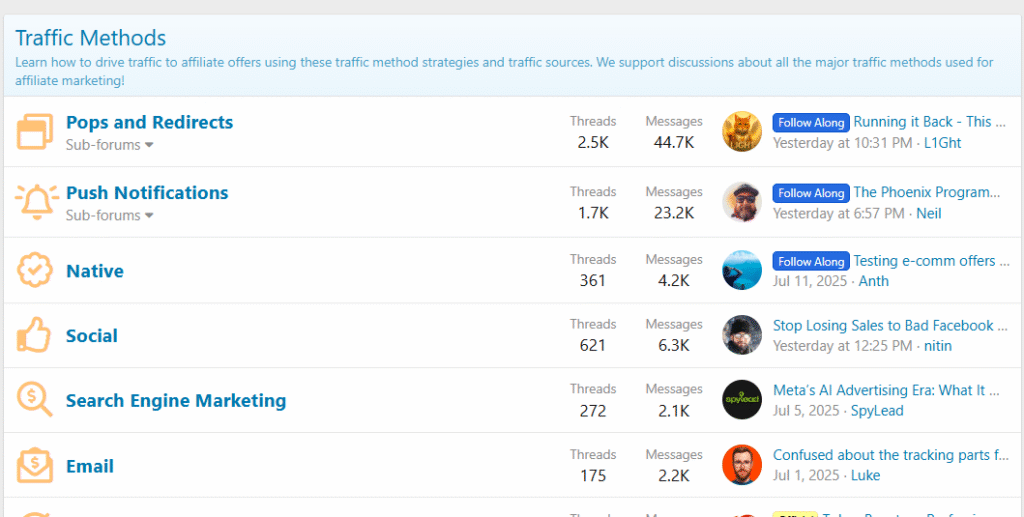
You might think: “Well, I paid for this forum — I should squeeze as much value out of it as possible.”
That mindset can lead you to spending hours reading instead of doing.
Sure, it’s better than wasting time on social media — but it’s still not as valuable as building real campaigns.
Also, be aware: not all forums are well-moderated.
Even paid forums can be flooded with people trying to sell to beginners — tools, courses, services, you name it.
In many cases, anyone who can pay a small fee can post whatever they want.
So remember:
Forums are filled with people trying to make money online — and sometimes, you are the product they’re targeting.
Spy Tools — Worth It (But Not Always)
Price: $50–$200/month
The first time I heard the term spy tool, I thought,
“What is this, some kind of James Bond gadget?”
Well… not exactly, but close.
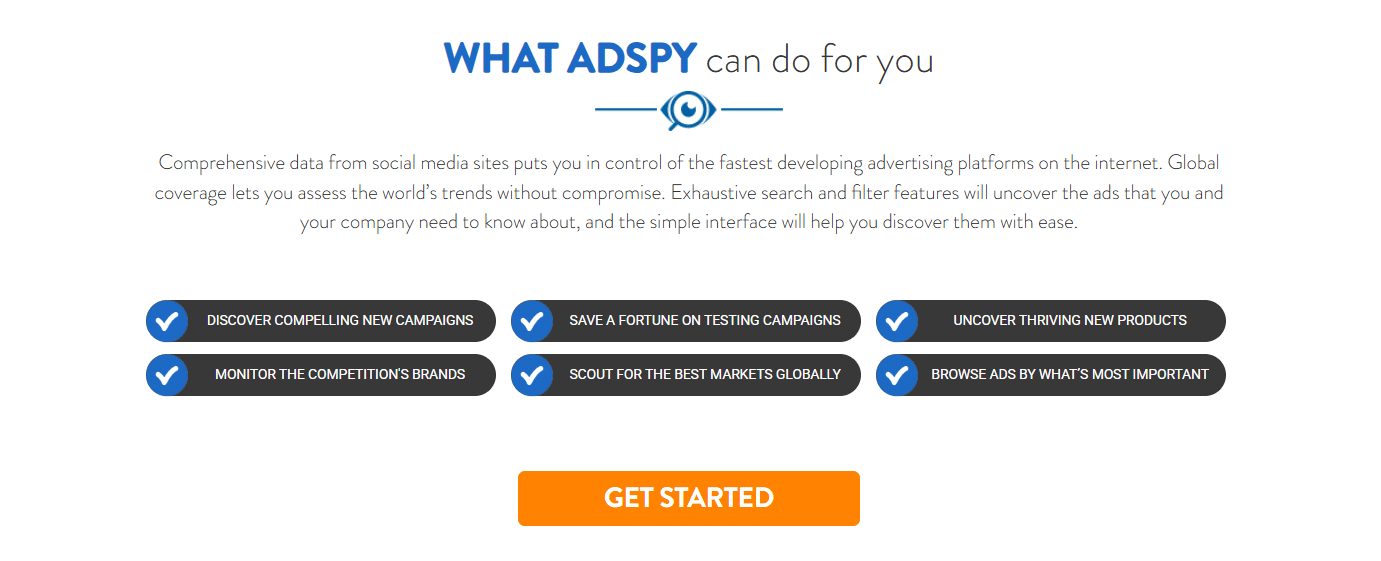
Spy tools can definitely make your affiliate journey easier — but they come with both upsides and downsides.
What they’re good at:
- Quickly show you which landing pages are working right now
- Help you find profitable markets and angles faster
- Let you see what offers other affiliates are promoting
- Let you grab and test proven landing pages without hiring a designer or coder
- Speed up your entire campaign launch process
But here’s the downside:
- They’re expensive. That money could go toward buying actual traffic.
- They can make you lazy. Relying on spy tools too much can kill your creativity.
So are they worth it?
If you know how to use them as a reference, not a crutch — then yes, they can be powerful.
But they’re not required when you’re just starting out.
Focus on getting campaigns live. That’s what builds real skill — not endlessly browsing what others are doing.
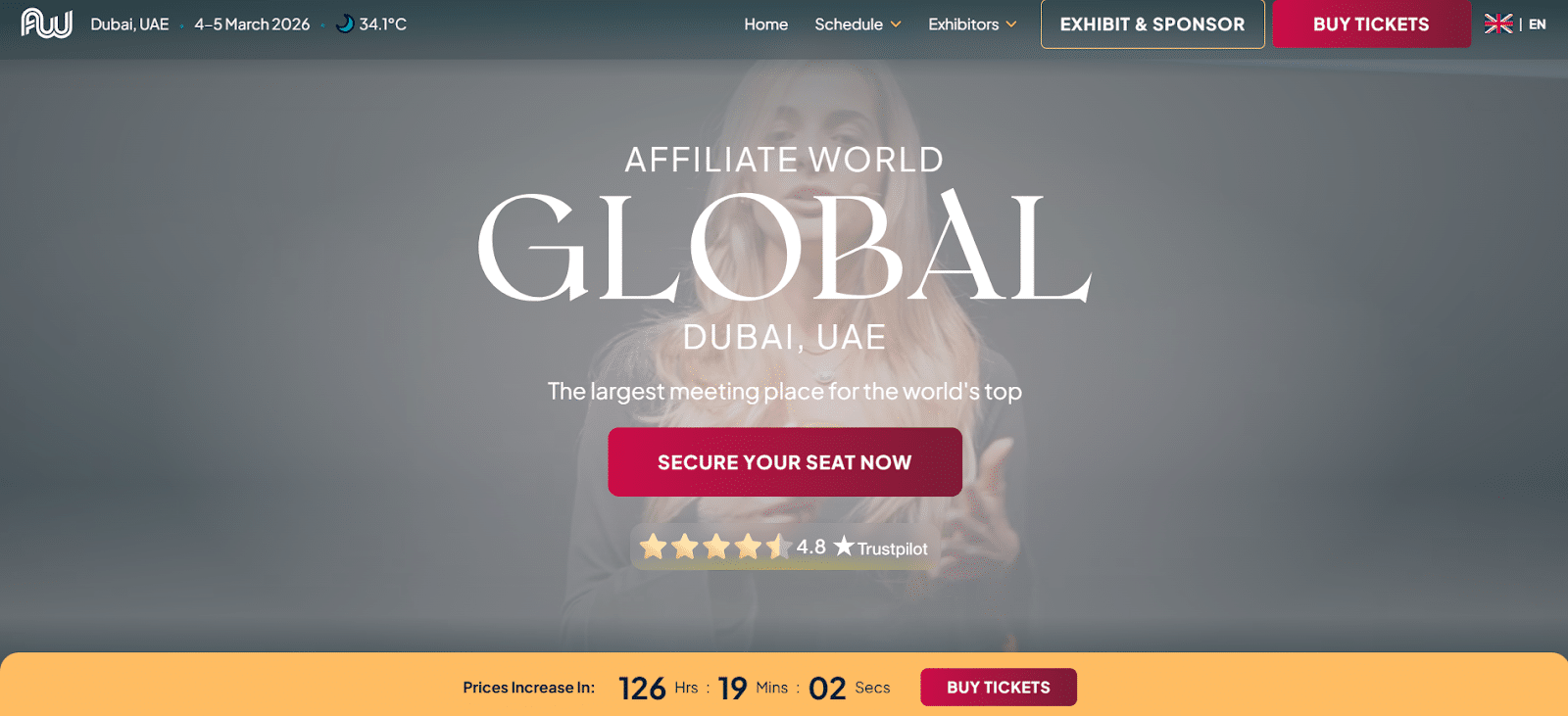
Affiliate Conferences — Great Opportunities, But Not for Everyone
Price: Around $1,500 (depending on location and travel costs)
Working with other affiliates in a Online group is great.
But nothing beats meeting people face-to-face.
I’d love to say “Go to every conference you can” — but let’s be real.
Attending one isn’t cheap, especially if you’re flying across the country or overseas.
Let’s say you’re based in Seattle and the conference is in New York. Here’s what it might cost:
- $500 for the event ticket
- $300 for airfare
- $400 for hotel
- $150 for meals
That’s already $1,350, and that’s not even counting the time away from your business.
You might think: “Why not spend that $1,500 on traffic instead?”
And honestly — if you’re still learning, that might be the smarter move.

Here’s the thing:
Affiliate conferences are packed with experts, networks, and top-performing affiliates.
If you’ve never run a campaign or don’t understand the lingo yet, it can feel overwhelming.
You might even struggle to hold a meaningful conversation.
So here’s my honest advice:
If you’re a beginner, skip the conferences — for now. Focus on launching campaigns and building your skills.
Once you’ve got some real experience, then think about attending.
But go with a plan. Know who you want to meet. Know what you want to learn.
That’s how you get the most value out of the time and money you’re investing.
How to Make an Affiliate Conference Worth It
If you’re going to spend $1,500+ and take time off to attend a conference, make sure you go with a plan.
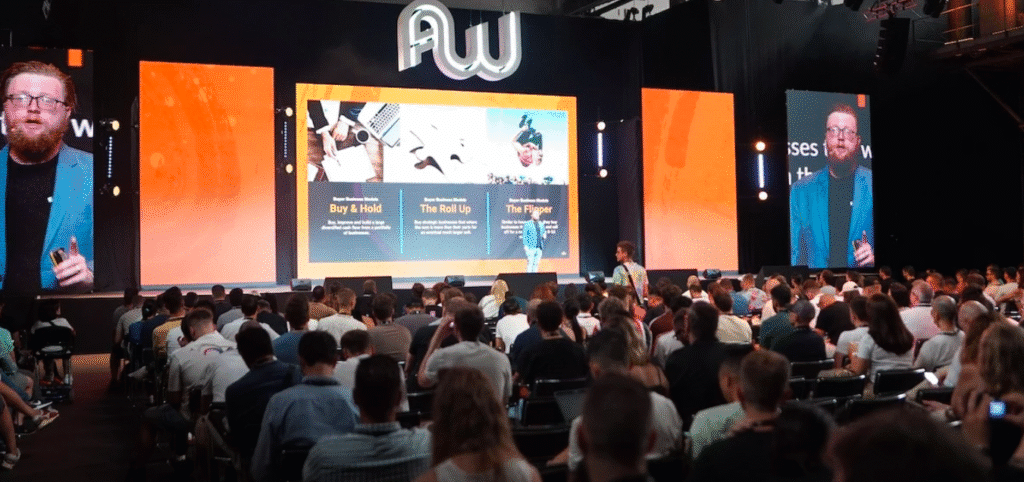
Here’s an example of a simple, effective strategy:
“I’m currently running profitable campaigns on Facebook Ads. Now I want to expand into native traffic. So my goal at this event is to connect with traffic source reps from native ad networks.”
Talk to them. Ask questions like:
- “Which offers are performing well right now on your network?”
- “What verticals are top affiliates focusing on?”
- “What kind of creatives tend to work best?”
Then find your affiliate managers and speak with them face-to-face.
There’s nothing more valuable than building a real human connection.
You can also meet other affiliates working in the same vertical or using the same traffic source — and start forming your own mastermind group.
That kind of focused peer support can make a huge difference in your growth.
Go with intent. Be clear on what you want.
That’s how you make a conference investment truly pay off.

What If You Don’t Have the Money to Start?
If you know how to make real money in affiliate marketing starting from $0 —
please reach out to me.
Seriously. I’d love to hear your secret.
Because from everything I’ve seen (and lived through), affiliate marketing requires investment.
You need money to test.
You need money to buy traffic.
And if you want to move fast, you’ll need to spend money to save time.
Now, here’s something else to think about:
A lot of people dream of quitting their 9–5 job, thinking they’ll become millionaires in a few months.
They’ve seen the success stories, the screenshots, the lifestyle posts.
But most of those stories leave out one key ingredient:
capital.
One of the best pieces of advice I’ve heard came from Richard Branson:
“Protect the downside.”
In other words — don’t put yourself in a position where failure means disaster.
Make sure your bills are paid, your rent is covered, and your life isn’t falling apart — before you take big risks.
Affiliate marketing can be a powerful model.
But it’s still business — and every business needs a budget.
Think About the Worst-Case Scenario
Let’s be honest for a moment.
If you quit your job tomorrow, pour all your savings into campaigns, and things don’t work out — what’s your plan?
Where will the money come from to pay rent, buy food, or take care of your family?
Back when I was just starting out, I worked hard on affiliate marketing.
But I had no idea how long it would take to succeed — so I kept my day job.
Even when I was making $10,000 a month, I didn’t quit.
Why?
Because I wasn’t chasing a good month.
I was building for long-term wealth — for life, not just for a year.
Nothing in life is guaranteed.
I’ve seen too many people quit their jobs, thinking affiliate marketing would make them rich overnight.
And sure, that might work for a few.
But to me?
That’s way too risky. I chose the safer path.
Final Thoughts
At the core of affiliate marketing, there are only three things you truly need:
- Traffic
- A tracking tool
- A reliable VPS
Everything else is optional.
Helpful? Sometimes.
Necessary? Not really.
Don’t fall into the trap of thinking you need a dozen fancy tools to succeed.
The most successful affiliates stick to the fundamentals.
They only invest in extra tools when there’s a clear reason — not out of fear or FOMO.
Always remember: this is a business.
And in business, your job is to lower costs and increase revenue.
If it’s not essential, don’t buy it.
Focus on launching and optimizing campaigns.
That’s what moves the needle.
Everything starts with traffic, tracking, and a solid server.


